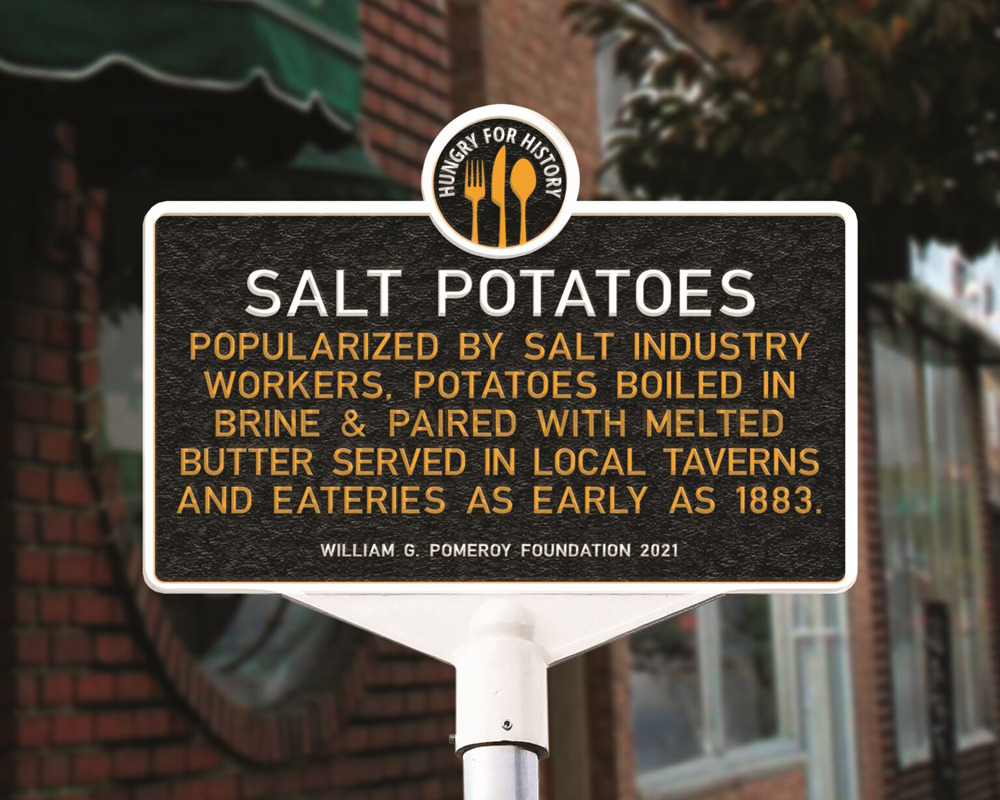New roadside marker program celebrates America’s food history

The William G. Pomeroy Foundation has announced the first-ever historical roadside marker program dedicated to preserving the stories of regional food specialties across the United States.
The Hungry for History™ grant program will fund the creation of roadside markers placed across the country that will celebrate the history of some of America’s most beloved foods. These markers will commemorate the role regional food specialties played in defining American culture and forging community identity. The Hungry for History program will ensure cherished culinary traditions passed down through the decades across the United States will live on for generations to come.
The Pomeroy Foundation has long supported the celebration and preservation of community history through the creation of more than 1,400 historical markers nationwide. Foundation officials noticed an increased interest in recent years from communities looking to promote their unique foods – including a historical marker application from Fairmont, West Virginia, which sought to highlight a pepperoni roll first baked for coal miners there generations ago – and decided to create a grant program exclusively dedicated to food history. The need to preserve the stories behind these foods became more urgent following the COVID-19 pandemic, which threatened many of the mom-and-pop restaurants that served these specialties.
“The Hungry for History program will shine a light on the foods across our country that have brought us together, set our communities apart and helped define who we are,” said Deryn Pomeroy, Trustee and Director of Strategic Initiatives. “We couldn’t be more thrilled to partner with communities nationwide and help tell the stories of these regional specialties that are such a part of our collective identity.”
To qualify for the Hungry for History grant program, the regional food specialty must be a prepared, ready-to-eat dish with at least two ingredients that originated before 1960. The dish must still be available to eat today, and have historical significance to the surrounding community. All applications must also include primary source documentation – such as an old newspaper article or menu – that proves the food’s authenticity and significance to the region.
Hungry for History letters of intent will be due by August 9, with the grant application deadline set for September 13; the foundation will award the marker grants in December. Prospective applicants must apply through a local 501(c)(3) organization like a historical society, nonprofit academic institutions, or a local, state or federal government entity.
More information on Hungry for History can be found at https://www.
wgpfoundation.org/history/hungry-for-
history/.
Provided information




